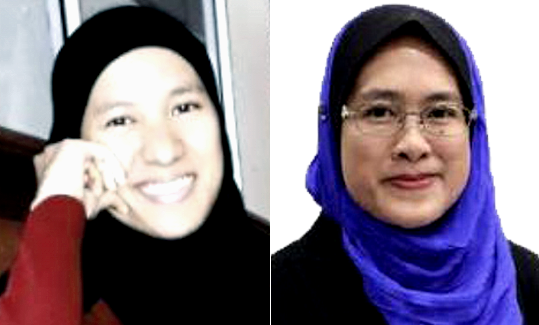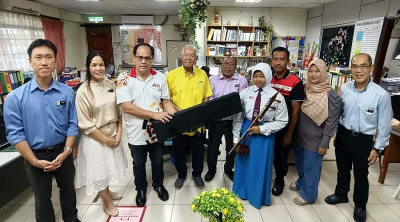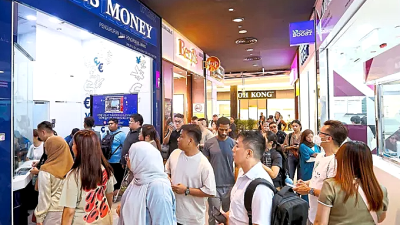By Dr Raudah Mohd Yunus / Prof Dr. Noran Naqiah Hairi

The massive and far-reaching impact of COVID-19 that we experience today is a form of collective trauma.
Some psychologists have likened this to grief, the intense sorrow that one experiences when losing someone he or she loves.
This collective grief, however, is slightly different. As a result of losing 'the normal life' that we are so used to, we experience confusion and anxiety that can easily lead to a loss of a sense of purpose and meaning in life.
These consequences are unfolding on a daily basis and in ways we have not seen before.
Every day we hear in the media and published reports and studies about the economic shutdowns, business closures, people losing jobs, families going hungry, migrants being scapegoated and detained, politicians making a mess, health care systems collapsing, and the increasing death toll. But beyond all these, what we feel more – but hear less – is how to make sense of what is happening.
In other words, why this tragedy? Humans' most natural response and instinct in times of crises is to find meaning.
Without doubt, the COVID-19 pandemic has disproportionately affected the older populations, especially with regards to the social isolation they are subjected to, severity of disease, and risks of mortality.
Nevertheless, we know little about how different age groups are coping, and whether our elders – despite their predicaments – approach the crisis with a different worldview or mental framework.
The current narrative of older adults across the globe has not been very positive. The pandemic has somehow reinforced many stereotypes about them – that they are weak, frail, sick and always in need of help and rescue.
Look at news headlines everywhere and you will see the elderly being described as 'sick', 'at risk', 'dying', 'needing assistance and special care', 'consuming greater resources', 'needing vaccines first', and many more.
Our senior citizens are largely portrayed as weak and constantly in need of something, but have nothing much to give.
But these impressions are half-truths. What we have not understood is how – in this period of crisis where people struggle to 'make sense' and 'find meaning' – our elders may have a lot to offer.
Vast experiences in life and having gone through a lot in their earlier years, older adults often have accumulated a wealth of wisdom and insight. Lest we forget, this insight cannot be obtained by 'googling' or 'several clicks' or 'watching YouTube' – all of which we always do to obtain quick answers to our daily questions.
Putting aside our assumptions about their health, cognitive ability and rigidity, ample research evidence shows that older adults have higher emotional maturity and resilience compared to their younger counterparts.
Similarly, they are found to possess greater ability in emotional regulation and problem solving when facing difficult situations.
In addition, older adults have higher sense of optimism, better skills in perspective-taking and show higher empathy and compassion for others.
In a period of crisis and uncertainty, we grope in the dark and look for something to hold on. We want assurance that things will be fine, and that there is after all meaning in what has befallen us.
Most of all, we want to hear and ascertain that whatever pain and suffering we experience are worth it. That this predicament is temporary and there is light at the end of the tunnel.
We are in desperate need of collective hope, wisdom and a sense of direction.
This global health crisis has opened a window of opportunity for building and strengthening inter-generational relations, a precious gem that many of us have lost in our daily rat race.
We need our elders as much as they need us. While we offer them physical and financial support, they can in turn offer us the guidance and wisdom that we desperately need.
Reach out and talk to your elders. Take the time to listen. You will be amazed by their sharp insight, advice and intuition – all of which you cannot find in Google.
(Dr Raudah Mohd Yunus, Universiti Teknologi MARA (UiTM); Prof Dr Noran Naqiah Hairi, Universiti Malaya (UM); PEACE Group Initiative, Universiti Malaya.)
ADVERTISEMENT
ADVERTISEMENT


































